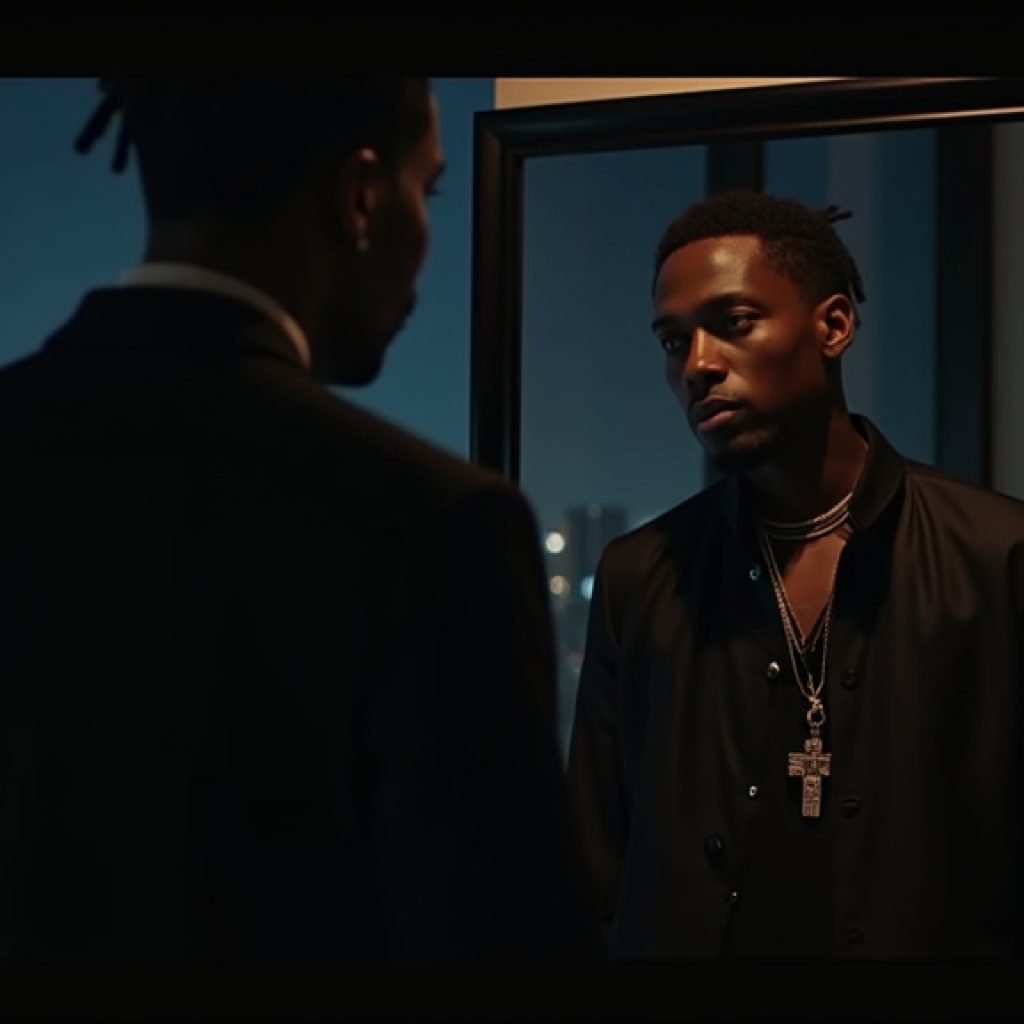Fat Joe’s Hip-Hop Loyalty Conundrum: Enjoying Gunna’s Chart-Topping Album Amidst “Rat” Backlash
In the intricate tapestry of hip-hop, where loyalty is often as revered as lyrical prowess, veteran artist Fat Joe finds himself in a complex bind. The Bronx icon recently revealed on his “Joe and Jada with Jadakiss” podcast that he cannot stop listening to Gunna’s latest album, “The Last Wun,” despite a personal code that prevents him from publicly endorsing artists perceived as disloyal or as “rats.” This admission highlights a recurring tension within the music industry: the challenge of separating an artist’s personal conduct from the merit of their musical output.
The Conflict on “Joe and Jada”
During a recent episode of the “Joe and Jada” podcast, Fat Joe confessed to co-host Jadakiss that Gunna’s album had been on repeat during a long flight. He admitted to playing the entire project from start to finish without skipping a single track, indicating a genuine appreciation for the music. However, Joe was hesitant to name the artist, a reticence Jadakiss eventually prompted him to overcome. Joe explained his internal struggle, stating, “My thing is now, you got some guys that are the hottest guys in the game. Rats.” He articulated a clear boundary: “Ever since I assumed you a rat, your people ain’t fucking with you no more. I’m off you no matter what you do.”
Fat Joe’s stance is rooted in a deep-seated personal experience with betrayal. He recounted a past incident where a close friend turned informant after facing federal charges. This betrayal had significant consequences, leading to confrontations that left a lasting impression on Joe and reinforced his unwavering commitment to the principle of loyalty. For him, betrayal carries no second chances, and he maintains that this personal code prevents him from offering public support to artists entangled in such perceptions.
Gunna’s “The Last Wun” and the “Snitch” Controversy
The “disloyalty” perception surrounding Gunna stems from his involvement in the YSL RICO case. While Gunna’s legal team has maintained that he did not cooperate with prosecutors, his Alford plea in December 2022, which involved acknowledging that prosecutors likely had enough evidence to convict him, has been interpreted by many within the hip-hop community as a form of betrayal. In court, Gunna admitted that YSL, the label he is associated with, also functioned as a gang. This acknowledgment, regardless of the legal nuances, led to significant backlash from fans and fellow artists alike, with many labeling him a “rat”—a term carrying immense weight in the unwritten codes of street culture and hip-hop.
Despite this controversy, Gunna’s musical impact remains undeniable. “The Last Wun” has reportedly ascended to the number 1 spot on the Billboard Rap Charts, showcasing his continued popularity and influence in the current music landscape. This success further complicates the dichotomy for figures like Fat Joe, who appreciate the artistry while grappling with the artist’s public standing.
Loyalty: A Cornerstone of Hip-Hop Culture
Fat Joe’s dilemma is not an isolated incident but rather a reflection of a broader, ongoing conversation within hip-hop about loyalty, integrity, and the implications of artists’ actions. The culture often places a high premium on loyalty, harkening back to its origins as a form of community and protection. The “stop snitching” movement, amplified by lyrics and public statements from artists, underscores the deeply ingrained distrust of informants and those perceived to cooperate with authorities.
Many artists, like Fat Joe, have personal histories that reinforce the importance of this code. Betrayal, whether in personal relationships or within the industry, can lead to lasting estrangement. For Joe, the ability to enjoy the music does not negate his principles. He finds himself in a position where his appreciation for Gunna’s craft clashes with his personal commitment to a code that he believes is fundamental to the culture.
Navigating Art and Ethics in the Modern Music Landscape
The tension Fat Joe articulates is a testament to the complex relationship between art, ethics, and celebrity in today’s music world. While some fans and artists advocate for separating the art from the artist, Fat Joe’s perspective highlights the difficulty in doing so when the perceived transgression strikes at the heart of foundational cultural values. His ongoing enjoyment of Gunna’s album suggests that while his principles dictate a refusal to offer public endorsement, the sheer quality of the music is compelling.
This situation invites a broader contemplation: can listeners and industry figures truly divorce the art from the artist’s actions, particularly when those actions violate deeply held codes within the community? Fat Joe’s internal debate—continuing to play Gunna’s music while withholding public support—offers a candid glimpse into the personal and cultural negotiations that define the modern hip-hop stories.
Fat Joe’s conflict underscores the enduring power of loyalty in hip-hop and the personal standards that artists and fans alike uphold. As Gunna’s music continues to top charts, the conversation around his place within the culture, and the ethical considerations it raises for peers like Fat Joe, is far from over. It serves as a compelling narrative of the intricate balance between artistic appreciation and the unwavering demands of loyalty in the world of hop.

























